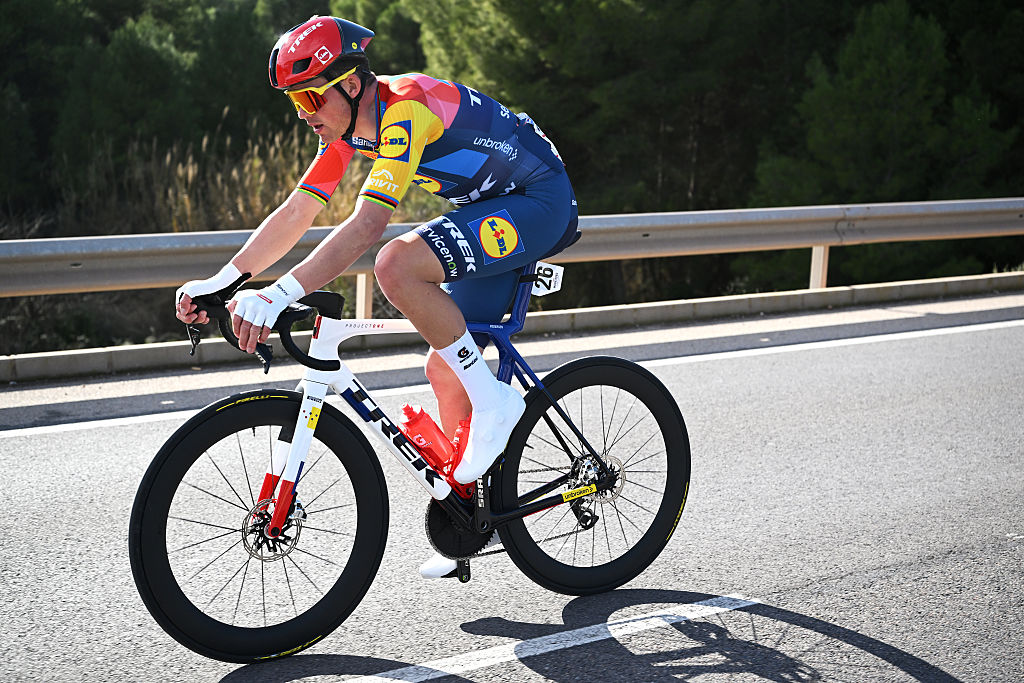Esteban Chaves: My career was almost over at age 22
Gratitude powers Colombian's 1000-watt smile
The latest race content, interviews, features, reviews and expert buying guides, direct to your inbox!
You are now subscribed
Your newsletter sign-up was successful
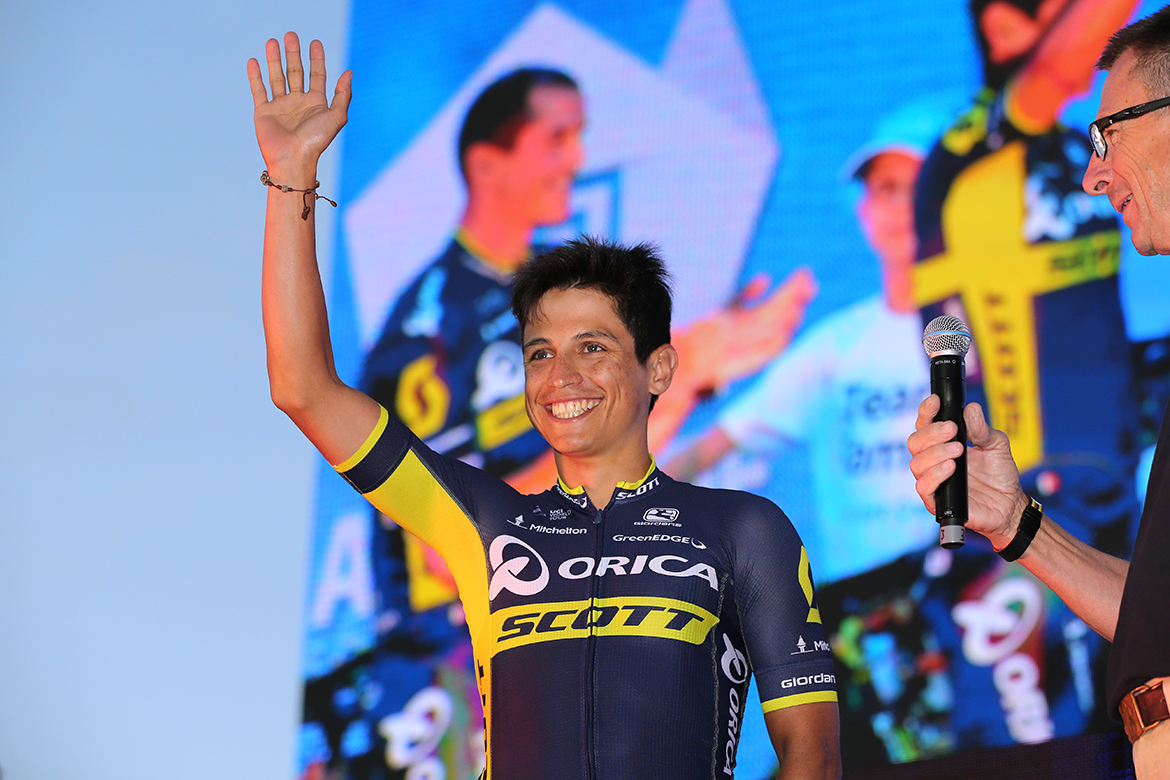
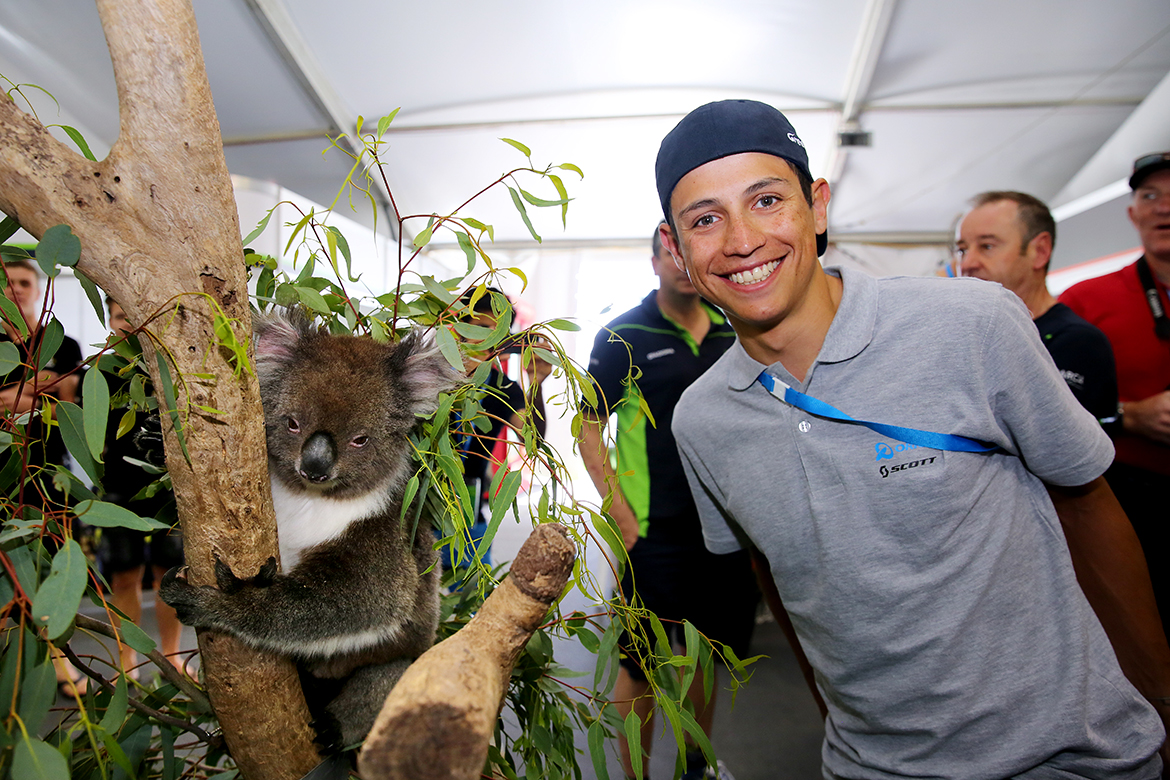
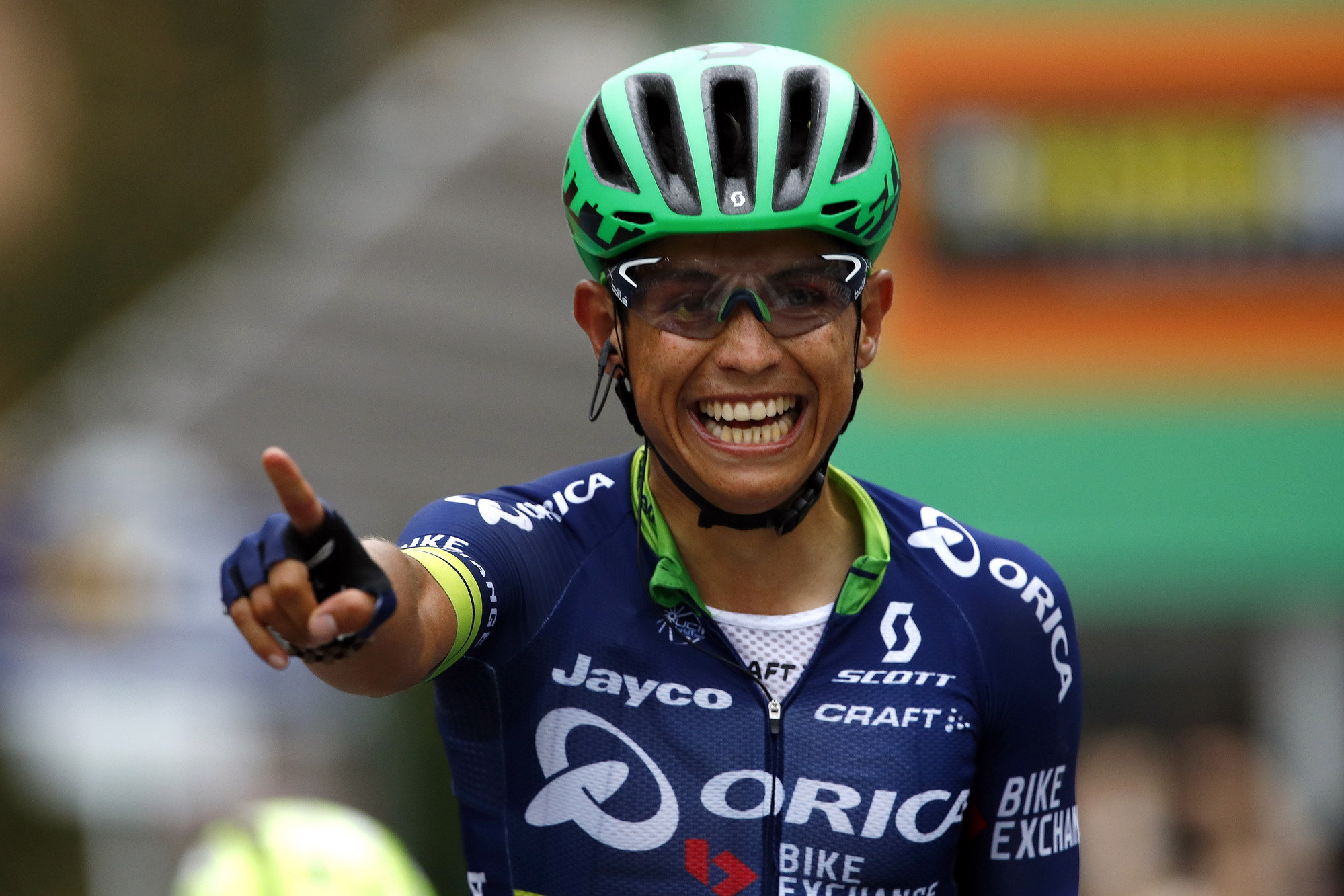
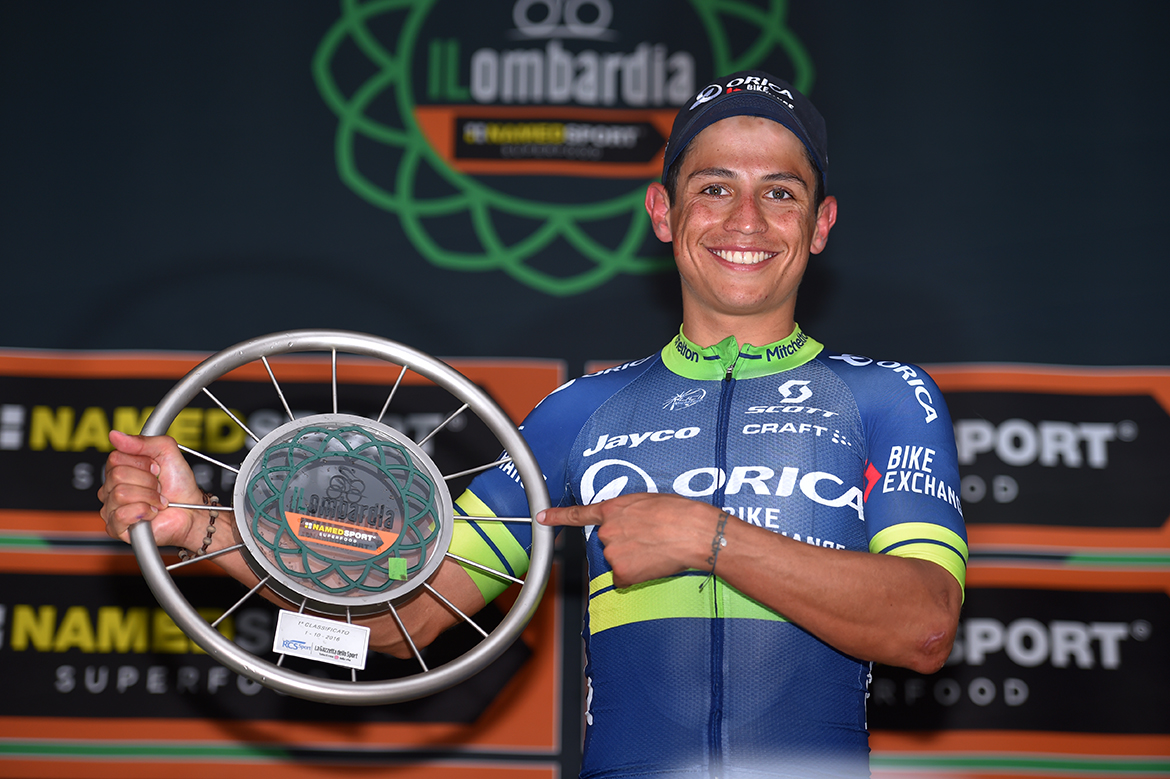
Orica Scott brought the balloons and the traditional Australian Lamington cakes; the press obliged with their flash cameras, and Estaben Chaves arrived on cue with that infectious smile to toast in his 27th birthday. There may have been the air of a publicity stunt at the Hilton Hotel in Adelaide for the Tour Down Under, but few would doubt that when Chaves paused to thank his team and others who have supported his career that the sentiment was nothing but entirely heartfelt and genuine.
After all, Chaves is a rider who came back from the brink - a rider who had his career almost entirely wiped out by a high-impact crash at the Trofeo Laigueglia in 2013.
Until that point, the Bogota-born climber had enjoyed an early promising career peak in 2011 when he won the Tour de L'Avenir, a gateway race for potential Tour de France winners.
However, on February 16, 2013, everything changed. On ProCyclingStats, a chiselled 'DNF' stands next to his name for the Trofeo Laigueglia, but those three little letters do nothing to describe the serious condition Chaves found himself in at the time. Among his catastrophic injuries - a compound fracture of his right collarbone, fractures to his skull, right cheekbone, maxillary sinuses and sphenoid bone, a punctured lung, and suspected rib fractures along with multiple contusions. The doctors and Chaves had no idea if he would return to the sport.
"For sure I thought I might have to stop racing. It was hard, it was super hard, actually. Athletes do nothing more than sport. We don't study, we don't work, we just do sport. To think about stopping your career at 22 years old, that's hard. What was there after that? I couldn't move my arm, so how could I work?"
The right arm injury was the most severe, with nerve damage so bad he could not move the limb, let alone feel it. Chaves underwent a 12-hour surgery, with the medical team taking nerves from his right foot and planting them into his arm. It was tenuous if the healing process would even work.
"Six months. That's how long it took for me to be able to move my arm," Chaves tells Cyclingnews as he sits down, as the rest of the press corp eagerly eye up the Lamingtons.
The latest race content, interviews, features, reviews and expert buying guides, direct to your inbox!
"It was scary. It was the hardest year for me because I crashed in February and I couldn't even get back on the bike until September. It was a tough moment because no one could tell me if I could recover at one point. If the doctors were going to tell me I couldn't return then I had to prepare myself for that. They were never 100 per cent sure after the crash if I could return. That was hard because I had nothing other than the bike."
Orica takes a chance on Chaves
Chaves lost an entire year of competition, but Orica GreenEdge, who were on the lookout for climbers, remembered Chaves and, by their own admission, 'took a punt'. They sought medical advice, helped Chaves through his rehabilitation and offered him a contract before he was even back on the bike. It's little wonder he has committed his long-term future to the team with another contract.
"I was a lucky boy. I found the right people in the right moment. The doctors who made the surgery, the people who helped with my physiotherapy, my family and this team [they all helped]. Orica, they signed me before my big surgery, so it's amazing. I'm here because of people, from the doctor who believed in me, and also because these Australian guys believe in me."
To some it may seem like a media stunt every time Chaves is dubbed 'half-Australian', and he has fulfilled his fair share of sponsor and media commitments during his stay in Adelaide for the Tour Down Under, but even the most cynical would be hard-pressed to doubt his affection for his team and vice versa. Some relationships between riders and teams are born out of necessity and some out of cold hard cash. The bond between Orica and Chaves is nothing but real.
"I tell the Spanish and Colombian journalists that these guys at Orica Scott were the light at the end of the tunnel for me. It was hard. I still have the morning of physio. It's not like it used to be when I was doing three hours in the morning and three hours in the afternoon. Back then, I remember there were no results after two or three months, and I couldn't move my right arm at all. Yet I still had a contract with a WorldTour team. That gave me a unique motivation, and it kept me going."
It remains to be seen whether Chaves rides the Giro d'Italia or the Tour de France this year. His team are keeping their intentions to themselves until the end of the Australian racing season but, whatever the outcome, Chaves will be bringing his enthusiasm and that smile to at least one Grand Tour this season.
"It's different now. I'm enjoying every moment. So on Sunday it was a super fast Criterium, I'm a climber but I still enjoyed it," he says as he reflects on how much he appreciates his current position and how everything was almost gone.
"At one point in my life I had lost everything, so just to be on start lines is awesome. Today I rode my bike with sponsors from Scott, and it was good, you know. I can win Lombardia, finish on Grand Tour podiums, it's awesome."
Can 2017 be the year he wins a Grand Tour?
"Well, why not? If it doesn't happen then, it's no sweat because I'm still riding my bike. Sometimes we forget the small things. I don't know if you have kids. Just waking up and seeing your son smile, it's amazing. If you have just that, take it."
Daniel Benson was the Editor in Chief at Cyclingnews.com between 2008 and 2022. Based in the UK, he joined the Cyclingnews team in 2008 as the site's first UK-based Managing Editor. In that time, he reported on over a dozen editions of the Tour de France, several World Championships, the Tour Down Under, Spring Classics, and the London 2012 Olympic Games. With the help of the excellent editorial team, he ran the coverage on Cyclingnews and has interviewed leading figures in the sport including UCI Presidents and Tour de France winners.

